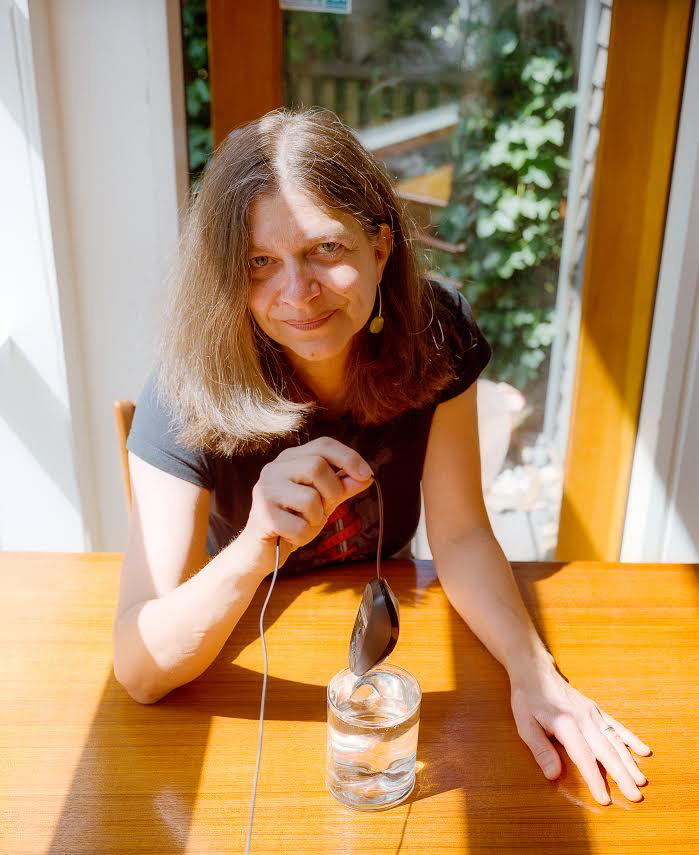Calgary author Zsuzsi Gartner talks time at the Gauntlet
By Emilie Medland-Marchen, October 13 2015 —
Canadian author Zsuzsi Gartner has a prolific resume. The University of Calgary graduate’s most recent short story collection, Better Living Through Plastic Explosions, was shortlisted for the 2011 Giller Prize. Her work has been published by CBC, NPR, The Globe & Mail and The Walrus, and she currently teaches creative writing to graduate students at the University of British Columbia.
She was also a co-editor of the Gauntlet 32 years ago, back when we had no computers and print media was thriving.
We caught up with Gartner before Wordfest, where she’ll speak at several events throughout the week. You can see her full schedule at wordfest.com/schedule.
The Gauntlet: What are your memories of your time at the Gauntlet?
Zsuzsi Gartner: What I remember most vividly is the all-nighters and semi-all-nighters we pulled trying to get the paper out twice a week for Wednesday and Friday issues. They often involved a hair-raising drive to the printers since we had to deliver photographed pages — pre-e-mail, pre-computer layout.
We laid out the paper physically using X-Acto knives and rulers. I remember one screaming fight between me and our photo editor that ended with her slamming the darkroom door shut just before my hurled X-Acto blade wedged into it — I have no idea what I was so pissed off about.
There was great camaraderie and much squalor in the Gauntlet offices in those days. A number of us practically lived in the office. Despite our infighting, we were pretty united against the Students’ Union and other campus enemies.
G: How did your time at the Gauntlet help shape your career as a writer?
ZG: It was pretty pivotal in sending me on my way to a career in journalism. I wrote for the paper for two or three years before spending a year as co-editor, then I got a summer job afterwards at the Vancouver Sun before travelling around Europe.
After, I went back and worked at the Vancouver Sun again, and then took a one-year journalism degree at Carleton University in Ottawa. The program was further training for people who already had a degree and some experience. That led me to Toronto to work for the entertainment section of The Globe & Mail before producing at CTV’s Canada AM. I quit after that and was a freelance magazine writer for years.
G: What was it like to transition to full-time work as an author and journalist after graduating from the U of C?
ZG: The journalism part was a natural transition, but the path to being a published fiction author was much longer and more difficult. I did an MFA in Creative Writing at UBC which was good for focusing the mind and forcing me to write fiction, which eased me away from journalism. Journalism made me have a thicker skin, and enlarged my knowledge of and curiosity about the world, which is useful for a fiction writer. I’m still not a a fan of insular, deeply personal, inward-looking fiction and non-fiction
G: Were you involved in the Creative Writing department at the U of C?
ZG: There was no department back then. I took the one creative writing course offered. It was taught by W.P. Kinsella, who really didn’t know how to teach, but had a lovely reading voice. Ronald Wright — who’s pretty damn famous now and is also speaking at Wordfest this year — was in my class and we started a writing group together with some of the other students, which was pretty useful and inspiring.
G: We’ve heard you may be reading an article from your time at the Gauntlet at Wordfest. Can you explain that?
ZG: I wanted to bring with me a literary magazine we published that year as a Gauntlet supplement. I’m still trying to find it. It included a terrific poem by a Calgary writer who died last month, Murdoch Burnett, and I wanted to read it in tribute. It was influential for me as a way of looking at the writer’s life and what poetry, what literary writing, should aspire to.
G: What would your advice be for university students looking to get engaged in the literary community and become writers or journalists?
ZG: Read, read and read some more. Read real books. Don’t self-censor. Don’t pretend to be someone you’re not. And write like you mean it.

